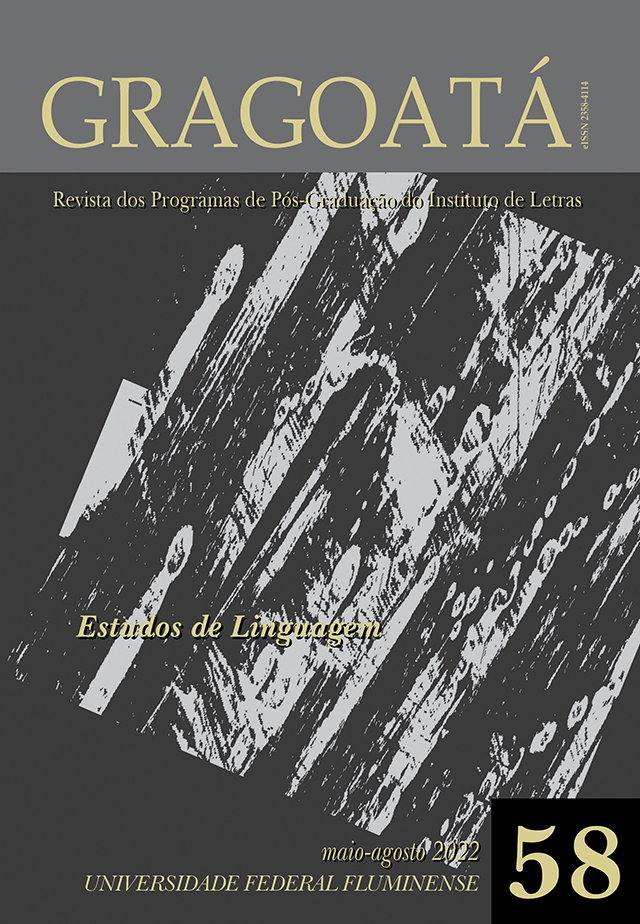A probabilistic approach to the distribution of subject and anacoluthon NPs in Topic in spontaneous speech
DOI:
https://doi.org/10.22409/gragoata.v27i58.50708Palavras-chave:
Topic, Subject, NP, Spoken syntax, Probabilistic grammarResumo
The definition of Topic as well as that of information structure in the literature is very broad (cf. BARBOSA, 2005; AUTHOR, 2015). Here we assume the definition as proposed by the Language into Act Theory (CRESTI, 2000), which says that Topic is the textual unit that is performed by an intonational profile of the prefix type (‘t HART et al. 1990), and that has the function of constituting the domain over which the illocutionary force applies. An NP in Topic either can be the subject or an anacoluthon of the following verb in Comment. Anacolutha NPs are phrases that bear no syntactic relations with the predication in Comment. In this paper, we show how NPs are distributed probabilistically between these two conditions when they are performed as Topics in spontaneous speech. For this purpose, we collected data from available spontaneous speech corpora informationally labeled – including the Topic unit as defined above – from three languages: European Spanish (NICOLÁS MARTÍNEZ; LOMBÁN SOMACARRERA, 2018), American English (CAVALCANTE; RAMOS, 2016) and Brazilian Portuguese (PANUNZI; MITTMANN, 2014). The statistical method used to calculate the probability was a mixed-effects logistic regression with crossed random effects conducted with the aid of R (R CORE TEAM, 2018). Three variables were chosen: accessibility of referent, animacy and definiteness. The model showed that there are about five times more chances for an NP performed in Topic to be the subject of the verb in Comment if it is animate, definite and given.
Downloads
Downloads
Publicado
Edição
Seção
Licença
AUTORIZAÇÃO
Autores que publicam em Gragoatá concordam com os seguintes termos:
Os autores mantêm os direitos e cedem à revista o direito à primeira publicação, simultaneamente submetido a uma licença Creative Commons Atribuição 4.0 Internacional (CC BY 4.0), que permite o compartilhamento por terceiros com a devida menção ao autor e à primeira publicação pela Gragoatá.
Os autores podem entrar em acordos contratuais adicionais e separados para a distribuição não exclusiva da versão publicada da obra (por exemplo, postá-la em um repositório institucional ou publicá-la em um livro), com o reconhecimento de sua publicação inicial na Gragoatá.
A Gragoatá utiliza uma Licença Creative Commons - Atribuição CC BY 4.0 Internacional.











